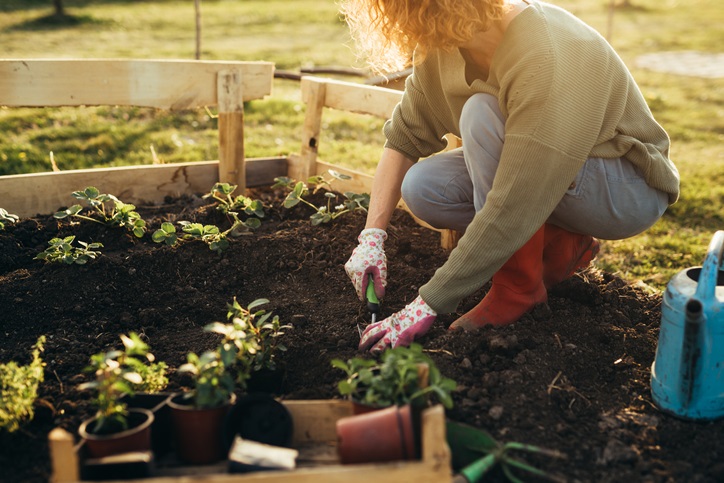Commitment + Clinical Leadership = Better Outcomes

15 Gardening Tips for Beginners
Whether you’re ready to make a garden for the first time or you’re looking to find ways to improve your garden, here are some gardening tips for beginners.
- Choose the right location. When planting a garden, you’ll want to choose the right location to grow your fruits and vegetables. The location should ideally be where the plants can get at least 6-8 hours of sunlight a day. However, it’s also important to know that some types of plants thrive in dark and damp environments. Do your research and choose the location that best suits the type of plants you’re growing.
- Have a plan to get water to the garden. You don’t want to tire yourself out hauling water from a faraway water source. Plan a way to water the plants, whether that’s through a hose or an irrigation system.
- Grow what your friends and family will eat. Focus on growing fruits and vegetables that you and your family will eat in the future. If you’re interested in participating in a local farmer’s market, do some research and see what produce is desired in your area.
- Learn the growing season of each plant. You’ll want to know how long it takes for certain plants to grow before you can harvest them. This will help you know what plants you should start growing inside your home or if you should grow them at all.
- Keep the soil consistent. You should keep the soil consistent in your garden for whatever you are growing. For example, if you buy transplants (which are plants that have already started to grow), you need to use the same type of soil that they originally grew in.
- Grow what you can handle. How many plants you grow will depend on how much time you want to put into your garden each week. It is estimated that it takes 1.5 minutes per square foot a week to maintain a garden. You should plant a garden that is small enough for you to handle as a beginner, but large enough to keep you busy and interested in the task.1
- Know the plants you can grow. Some plants will thrive in colder climates while others are more suited to hotter ones. You should research your climate and find out what kind of fruits and vegetables will grow best where you live.
- Use mulch. Mulch is a great way to help protect your garden from weeds and keep moisture in the soil. Mulch will also break down over time and provide your plants with nutrients. Good quality mulches include straw or wood chips that can be easily spread across your garden.
- Eat your plants when they’re ripe. Your plants will be ripe and ready to eat for a short time, and then they will start to go bad. You should eat your plants as soon as they’re ready, because they will begin to wilt if you wait too long.
- Avoid overwatering. It is recommended that you do not accidentally overwater your plants. Try counting to three while you water them and look for signs that you need to add more water. For example, if the leaves are drooping, you may need to add more water than usual. You may also want to add more water if it’s hot outside and there is no sign of rain coming.
- Water your plants in the morning or evening. It is best to water your plants in the morning or evening so that way the water can soak into the soil. If you water during the hottest part of the day, the water will be likely to evaporate and never reach the root of the plant.
- If you need to move your plants, try to do it after rainfall. This will keep the soil damp, which can prevent the roots from cracking.
- Use rocks to border your garden. This will help prevent grass and weeds from taking over the area where your plants should be growing.
- Protect your garden from animals. You should make sure that your plants are kept in a spot that will deter pests and animals from eating them. You should locate your garden in a space where animals can’t easily get to it, or deter them by putting a fence up.
- Mark your plants. If you’re growing multiple types of plants, you should mark the areas where you planted each one. One gardening tip for beginners is to write the names of the plants with a permanent marker on rocks and place those where you planted each crop.
Now that you know some tips about gardening, you can take this knowledge and look to start improving your garden today!
Saber Healthcare is an organization dedicated to providing consultant services to long term care providers. This article is for informational purposes and is not meant to be seen as professional advice. Please consult with a medical expert before relying on the information provided.
Sources
